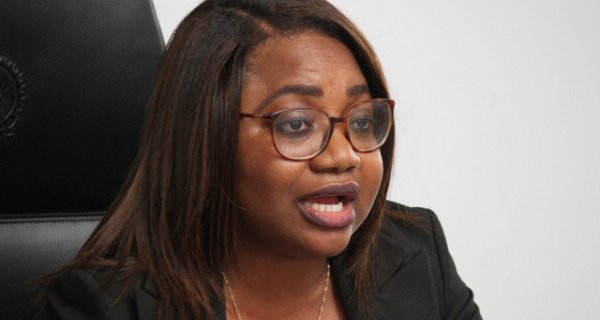Eduarda Rodrigues participated by videoconference in the seminar on International Cooperation, Governance and the Rule of Law in Angola, which focused on "Challenges to the construction of a culture and new cooperation agendas", after two days of debates.
"Until 2017, our cooperation was passive, in which we received more requests for cooperation, but we made very few requests for international cooperation. Just as an example, in 2017, Angola only requested four requests for international cooperation, however, it received 124 other countries requested, in other words, we had a very passive and less active cooperation", said Eduarda Rodrigues.
According to the magistrate, from January to August this year, Angola has already sent 68 requests for legal aid and received 98 rogatory letters from several countries around the world.
"Angola has evolved a lot in terms of international cooperation. We have cooperated with several countries in Africa, Europe, Asia and America", said the assistant attorney general, stressing that since 2015 the country has had a law on international judicial cooperation in criminal matters .
The national asset recovery director also stressed that Angola cooperates with all countries in the world at various levels, to request legal assistance in criminal matters, requests for the transfer of prisoners, transmission of criminal proceedings, among other issues.
"Since 2017, we have taken a big leap in international cooperation, especially now with the institutionalization of the asset recovery service and with the fight against corruption, all of this more intense. We have increasingly cooperated with several countries in the world and the cooperation has been fruitful with visible results," he guaranteed.
Eduarda Rodrigues stressed that many of the amounts illicitly removed from the State budget were sent to Europe, Asia, and the country will not be able to bring these amounts back without investing in international cooperation, and that is what it has been doing.
"The multilateral agreements, the international conventions to which Angola adhered allow that, even if there is no bilateral agreement with these countries, it can make requests for cooperation within the scope of these international instruments, provided that it guarantees the principle of reciprocity and that is what it has been done and we have been attended to," he said.
According to Eduarda Rodrigues, this cooperation has already allowed the Angolan Government to make the seizure and seizure of assets in several countries, including Switzerland, Holland, Portugal, Luxembourg, Bermuda, among others, which are currently being seized abroad, in cash or goods, values above six billion dollars, "which has only been possible with international cooperation".
"We are talking here about two-year results only in terms of international cooperation", underlined the magistrate, indicating that Angola feels some difficulty in cooperating in the judicial sphere with some countries, such as the United Arab Emirates and China, which have been overcome with the involvement of embassies and the State, through bilateral agreements.
However, "there are still many challenges in the scope of international cooperation", highlighted Eduarda Rodrigues, such as the request for legal assistance that is still usually made through diplomatic channels, as there are no bilateral agreements, which is not registered with Portugal because they have an agreement. bilateral agreement in judicial matters.
"What doesn't happen with other countries, that's why we make requests through diplomatic channels, this delays international cooperation a lot, but when there is informal cooperation, we are increasingly guided by this informal cooperation," he pointed out.
As for the requests requested from abroad, Eduarda Rodrigues admitted that there are still difficulties in complying with these rogatory letters for administrative reasons, namely the country's toponymy.
"Sometimes there is a lack of location maps of homes to find people to be listened to. We have already had concrete situations of someone who wanted to be heard by videoconference, but had no legislation to allow it (...), there are also many difficulties in relation to the digital test and training of human resources", he stressed.
Angola sent 68 letters rogatory in the scope of international cooperation this year
Angola went from passive to active international judicial cooperation, with the sending, this year, of 68 letters rogatory abroad, against four requests made throughout 2017, informed the assistant attorney general, Eduarda Rodrigues.







